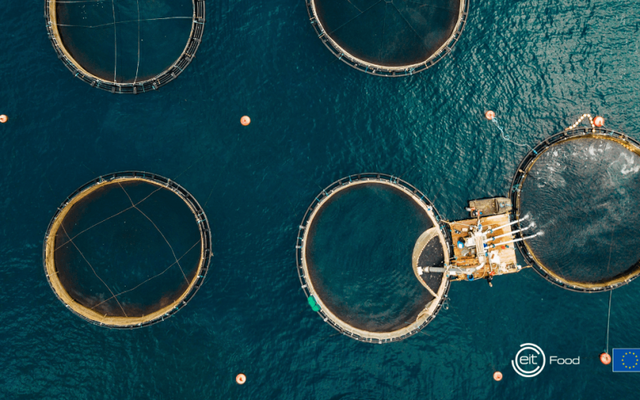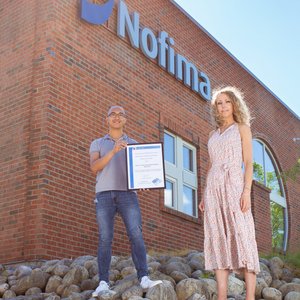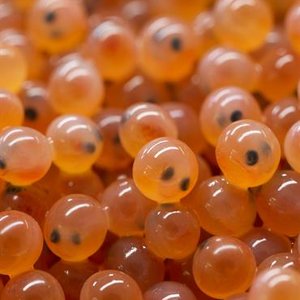EIT Food announced the results of its sustainable aquaculture competition, with seven new projects launching and 18 new partners joining the world's largest food innovation community, supported by the European Institute of Innovation and Technology (EIT).
A total of 85 organizations from within and outside the EIT Food community participated in the competition. Of these, 32 project proposals were submitted for evaluation against their potential impact on fast-track sustainability within aquaculture.
The winning projects are:
Next Tuna: Creating a sustainable tuna industry will create the first sustainable European source of tuna by breeding Atlantic bluefin tuna in a land-based, eco-friendly recirculating aquaculture system. The project will contribute to the preservation of Atlantic bluefin tuna and more widely, protect the wildlife of our oceans and seas.
Project consortium: Next Tuna GmbH (Germany), The Spanish Institute of Oceanography (Spain), Wageningen Livestock Research (The Netherlands) and Seafarming System AS (Norway).
DELTA FUTURO: Shellfish juvenile production model is an optimized sustainable shellfish farming system, that aims to guarantee the wellbeing of shellfish juveniles and ensure food security for future consumers. The project will respond to the lack of high-quality manila clam seed by scaling up hatcheries and improving seed availability for farmers.
Project consortium: Delta Futuro (Italy), Biores Soc Coop (Italy) and Foundation Seashell (The Netherlands).
Just Add Water: Utilizing world-leading technology to minimize environmental impact and maximize fish welfare of farmed salmon will grow Atlantic salmon in recirculating aquaculture systems (RAS), throughout the EU. The project will aim to expand and commercialize its technology that improves animal welfare and product quality and accommodates many fish species across multiple geographical locations.
Project consortium: FishFrom Ltd. (UK), University of Trento (Italy), University of Bologna (Italy), Hub Innovazione Trentino (Italy).
BREEZE: A revolutionary eco-friendly system for fish health management will enable the successful scaling of sustainably managed fish farms, to meet the growing demand for healthy proteins. It aims to bring to market a residue-free prevention and control system for sea lice management, to contribute to increased resistance to diseases, while increasing awareness of animal welfare and minimizing environmental impact.
Project consortium: Aqua Pharma Group (Norway), Pulcea (UK), University of Stirling (UK) and the Norwegian University of Science and Technology (Norway).
AGAPE: Aquacultural global AI platform for Europe’s skills passport. It represents an AI-based collaborative platform. This platform addresses the EU aquaculture market, academia, consumers and research ecosystems. AGAPE is first in bringing an innovative model of interaction between stakeholders. It will broaden the community on skills, capabilities and competencies, globally and in real-time.
Project consortium: Milcoop BC (Italy), Federpesca (Italy), Gargano Pesca Consortium (Italy), the University of Peloponnese (Greece), and Focos (Germany).
Ground-breaking circular economy feed ingredients for farmed salmon will develop a fish feed for salmon that contains protein from recycled wastewater in the starch industry. The project will support the natural defence mechanisms of salmon by supporting their basic biological functions while preventing disease. The fish feed will be made from a sustainable fungi-based protein to replace the use of fishmeal and soybean meal.
Project consortium: Cewatech (Sweden), Technical University of Denmark (Denmark) and Matis (Iceland).
Sustainable Seafood Processing (SuSeaPro) will develop novel processing technologies that extend the shelflife of seafood products, that do not rely on additives or heat treatment, to reduce food loss and waste from farm to fork. The project will also improve food safety and enhance consumer perception by reducing the microbial growth of harmful pathogens.
Project consortium: SuSea (The Netherlands), the University of Aarhus (Denmark) and the Agricultural University of Athens (Greece).
EIT Food is Europe’s leading food innovation initiative with the aim to create a sustainable and future-proof food sector. The initiative is made up of a consortium of key industry players, startups, research centers and universities from across Europe.













